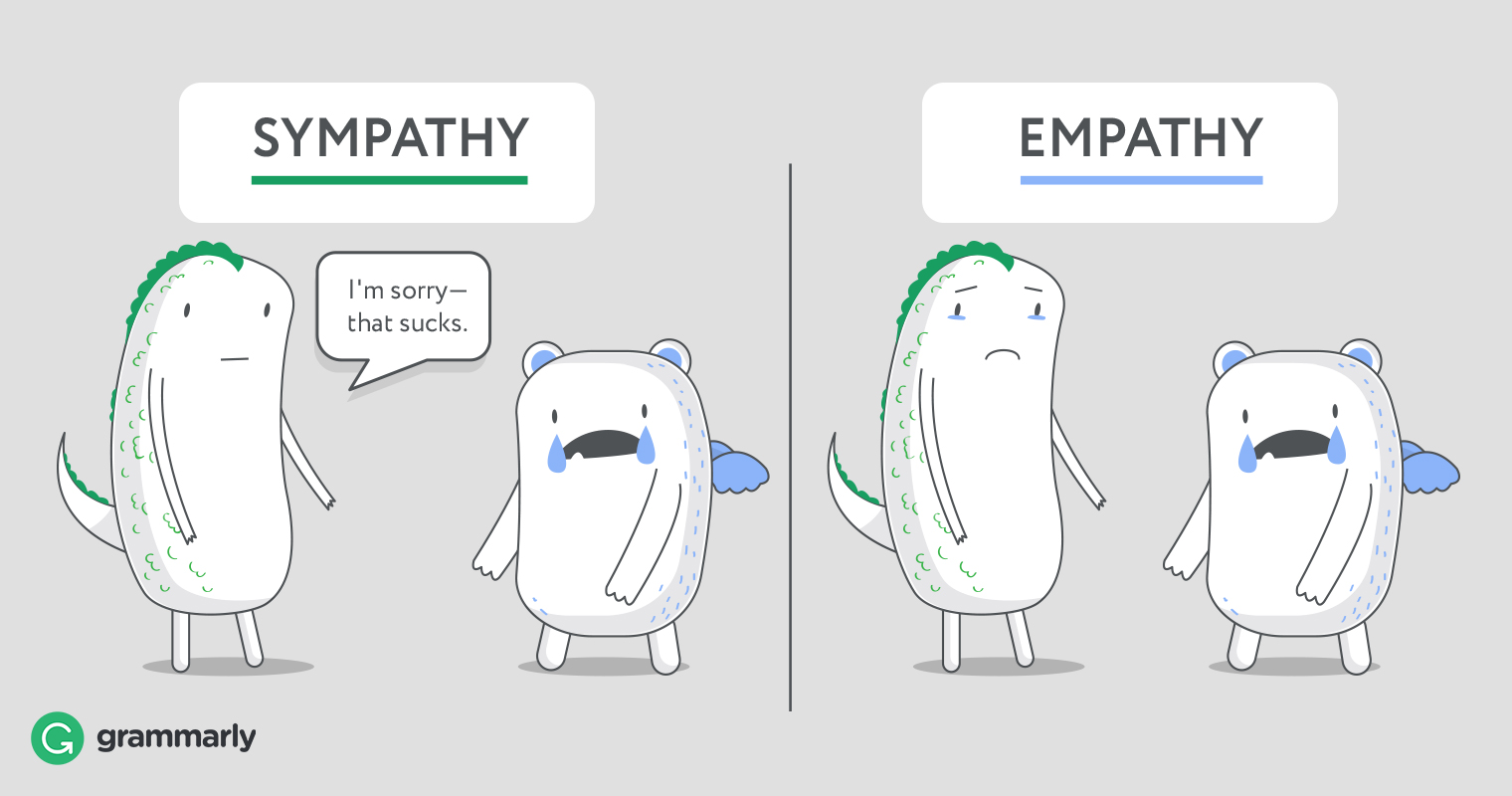Key takeaways
- Empathy is the ability to walk a mile in another person’s shoes and understand how they think and feel, from their perspective.
- Sympathy is acknowledging a person’s situation but keeping the emotions at a distance whereas empathy is acknowledging and understanding a person’s experience by being vulnerable and opening up to the person.
- Becoming a more empathetic person can be done by taking genuine interest in others and listening with intention.
What is empathy?
Empathy is the ability to understand another person’s feelings from their point of view. It is the ability to ”walk a mile in someone’s shoes” and feel with someone. And more importantly, empathy is the fuel that drives connection, which is what helps us sustain and grow our relationships.
In an increasingly high-stress business environment, empathy can help restore productivity and employee satisfaction. Empathetic leaders can create an environment that encourages open and honest feedback from employees. In times of tension, this can be helpful in minimizing the risk of toxic behavior and allowing teams to remain focused on their goals. Additionally, having a work environment that promotes empathy also means employees can feel seen and heard. This becomes particularly important when employees need the support of their colleagues and leaders to get through a difficult situation. Anything short of this can create feelings of hostility and may even push an employee to leave.
Three components of empathy
According to psychologists Daniel Goleman and Paul Ekman, three core components make up empathy. They are cognitive, emotional, and compassionate.
Cognitive empathy is the knowing of how someone is feeling. It’s understanding what the word is and being able to view the situation and feelings from their perspective. Emotional is when you feel alongside the individual. If a friend or a loved one opens up about their experience, we may open up to a vulnerable spot and also take on similar feelings. Compassionate occurs when you are so moved by their experience that you are motivated to help them.
Empathy vs. sympathy
Empathy is different from sympathy. Where sympathy is the ability to acknowledge and understand how a person is feeling from an emotional distance, empathy requires vulnerability. Empathy requires you to open up about an experience that brings where you may have had similar emotions. Doing so, which can be very difficult, is what allows you to feel for the person’s difficulty. Those who have sympathy do not address the emotional part of the experience. Instead, they may try to highlight the silver-lining in the situation.
Qualities of an empathetic person
Perspective-taking – this is the ability of an individual to be able to remove themselves from their view and take on another person’s view. In some cases, it may be impossible to fully understand another person’s perspective. However, in the face of this, empathetic individuals still make space to recognize the person’s lived experience and truth.
Staying out of judgement – another quality of an empathetic person is the ability to acknowledge someone else’s experience without judgement. One must do this in order to fully appreciate how the other person processes their experience. If you are making a judgement, you will likely not be able to reach a vulnerable state that is required for empathy.
Recognizing emotion in other people – another quality of an empathetic person is their ability to recognize the emotions in others. Acknowledging someone’s experience by speaking directly to the emotion they’re feeling can be powerful because it makes the person feel seen.
Communicating the emotions you see – finally, the last quality of an empathetic person is to communicate that they communicate the emotion they see. Doing this demonstrates that they do, in fact, recognize and understand the emotions you are going through. More importantly, making it known that you see and understand those feelings is what builds the connection that the other person really needs.
Being empathetic is often a quality associated with the supportive personality dimension. Take our free DISC personality assessment to see how supportive you are today!
Example of an empathetic response
Being empathetic requires that you reflect inwards and open up to an experience that maybe bring about certain types of feelings. It may look like the following:
Jessica just miscarried her first child. Jessica tells her brother about the situation. His brother responds, “I am so sorry Jessica. I know this is hard and unfair. Is it ok if I come see you?”
When people are going through an emotional event, like a miscarriage, what they need is connection.
Non-empathetic response
An example of a non-empathetic response could look like this:
Jessica just lost her husband, Jon, to cancer. Jessica tells her best friend, Judith, about the situation. Judith responds, “Oh, I am sorry. You are strong so I know you will get through this.”
In this example, Judith doesn’t demonstrate empathy for her friend who has just experienced a traumatic and life-changing event. Instead of bringing herself to the experience, she gives Jessica what is synonymous with a “there there” pat on the back.
Many a times people may also give sympathetic responses not realizing it is not empathy. Sympathetic responses typically start with an “at least this.” For example, if you are telling your friend you just recently lost your job, a sympathetic response may be “well, at least you had a job so you know you are employable.”
How to increase your own empathy
Increasing your abilities to be empathetic takes intentional practice. Below are three ways you can increase your empathy.
Take a genuine interest in others – one key way to become more empathetic is to take a genuine interest in those around you. Be curious and ask questions about their experiences and perspectives. Taking time to understand how someone else lives through certain events can give you a different lens in life.
Listen with intention – when conversating with another person, be sure to listen with intention. We often hear the other person and prepare our answers without fully processing what the other person is saying. Slow down and take time to process and understand what the other individual is saying. Additionally, listening requires taking in all the other non-verbal cues. Be sure to pay attention to the person’s tone and body language.
Walk-in another persons’ shoes – finally, there’s no better way to learn empathy than to take steps in another person’s life. George Orwell authored his book, Down and Out in Paris and London by taking on the life of a beggar in London. This is said to have given him a different perspective on his life, changing his priorities, beliefs, and even his relationships.

